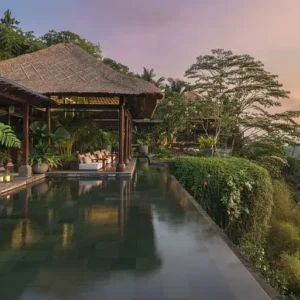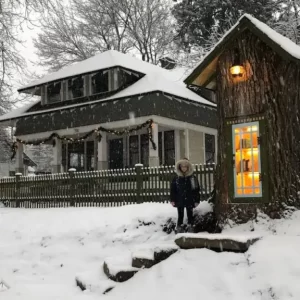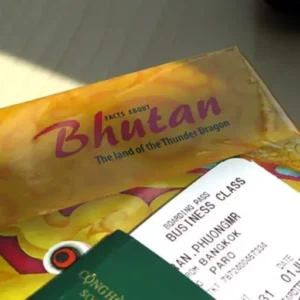Vietnam is a shopping heaven; you can find anything from locally produced souvenirs to high-end luxury goods. Prices are relatively cheap, especially if you master the art of bartering! Vietnam is famous for the following goods:
Silk
You can either buy raw silk as material to use when you get home or buy beatiful silk garments. There are an abundance of silk shops and even entire streets dedicated to selling silk. Try to avoid the shops that are clearly aimed at tourists to get the best price. The most famous brand in Vietnam is Kliai silk.
Propaganda posters & War memorabilia
Some find it tasteless but there is no denying that there is a huge market in war memorabilia and propaganda collections. Of course some items are more ‘authentic’ than others so do a bit of research into what you are buying if you want an original piece at a reasonable price.
‘Made in Vietnam’ goods
No you aren’t buying genuine Raybans for $2 and if you buy Addidas for $5 then the stripes will probably fall off after a few washes. Who cares? Vietnam has very relaxed laws on counterfeiting goods and to the untrained eye these good look the same as the real ones.
Coffee
Vietnam is famous for coffee and you can readily buy coffee beans from most shops and market stalls. They make great gifts for the caffeine lovers in your life.
Artwork/Lacquer
Vietnamese culture places a lot of emphasis on art and handicrafts so the variety of different artistic styles is incredible. You can pick up smaller craft pieces and carry them home or ship larger masterpieces by airfreight. Lacquer artwork is unique to Vietnam makes a truly special souvenir.
With such an abundance of shopping options it’s sometimes hard to know where to look to get the best bargains. The list below covers all of the hottest shopping spots.
Hochiminh City:
-
-
- Ben Thanh Market – Head down early in the morning to grab some handicraft, art and lacquer bargains. Alternatively the market comes alive in the evening with pop up food stands and hundreds of stalls selling everything you can dream of. Practice your bartering skills and get all of your souvenirs in one trip.
- Vincom Center – Not just one, but actually two, gigantic luxury department stores. If you are looking for designer goods and wantreassurance that they aren’t counterfeit then this is the place to go.
- An Dong Market – Located a little out of the city center in District 10. This market is mainly for locals selling wholesale fashion goods but has some amazing little craft stalls too. Here you can find locally produced wooden and lacquer goods made to the highest standards.
- Binh Tay Market (Cholon Chinatown) – This market is fun, bustling and frankly chaotic – it’s fantastic!! Discover some weird and wonderful bargains and buy fresh exotic fruit. Located in District 5.
- Diamond Plaza Department Store – You could be anywhere in the world in this luxury mall. Whether you want perfume, designer goods or just a trip to the cinema or bowling alley – Diamond Plaza has it all.
- Saigon Square Shopping Mall – Located in district l, this is your go to place for fashion bargains and ‘Vietnamese specialty goods’ (*cough* counterfeit). The mall is arranged over two levels and primarily deals in fashion, jewelry and accessories. Unlike Ben Thanh the mall is both air conditioned and under cover – perfect for shopping up a storm!
-
Hanoi:
-
-
- Hang Da Street – Great for high quality textiles and custom made clothing.
- Hang Gai Street – Known as Silk Street, you can no doubt guess what it sells. Whether you want to buy raw silk or other silk items this is the place to go.
- Hanoi Weekend Night Market – The biggest and busiest night market in Hanoi, open Friday, Saturday and Sunday. This market attracts hordes of both tourists and locals looking to pick up some tasty snacks or bargains.
-
Bartering
First and foremost you can relax in the knowledge that discussing the price of things in Vietnam is not a social taboo. In fact, if you over pay for something then a Vietnamese person will happily tell you that you did (obviously not the vendor though!).
Now why would you barter over such small sums of money? Well the long story is that prices are massively inflated for tourists (of course they are, don’t take it personally). So when a tourist pays 5 or 6 times what a local would pay for the same goods it means that vendors stop trading to locals and only sell to tourists because they get more in return. Over time this drives up prices for locals and artificially over-inflates prices.
On the other-hand, the short story is that we barter to get a better bargain. The vendor still receives a good deal and so do you – everyone leaves happy!
Never allow bartering to get nasty or let it leave you with a bad feeling because ultimately it should be light hearted and fun. If you feel you are being absolutely ripped off then walk away, you will find what you want somewhere else. Otherwise engage in some bartering, offer what you think is reasonable and see how close you can get. Compromise is key!
If possible try to find out the value of what you are going to buy before you engage in negotiations. Staff at your hotel will usually be more than happy to tell you the price of things so you know where to pitch your offer price. Realistically you WILL pay more than locals, you are a tourist and that’s what happens!
The final stage of bartering is the ‘walk away’. If negotiations aren’t getting anywhere then simply thank the vendor and walk away, then one of three things will happen:
-
-
- The vendor will chase after you and begin negotiations with renewed vigor
- Another vendor who has overheard the exchange will offer you similar goods at a better price.
- Nothing will happen; you walk away and search for the goods elsewhere. Then practice your bartering banter for your next attempt!!
-
Customs considerations – Can you carry what you have bought in your backpack? Buying an incredible replica gun that is actually a cigarette lighter is all fun and games until you take it to the airport and all hell breaks loose. The same can also be said for some biological products such a Kopi Luwak coffee. Due to border control, some countries simply do not allow in products that have been passed through a civet cat’s digestive system- fair enough.
If you aren’t sure whether goods are allowed through customs, then double check online with your home country borders rules.





